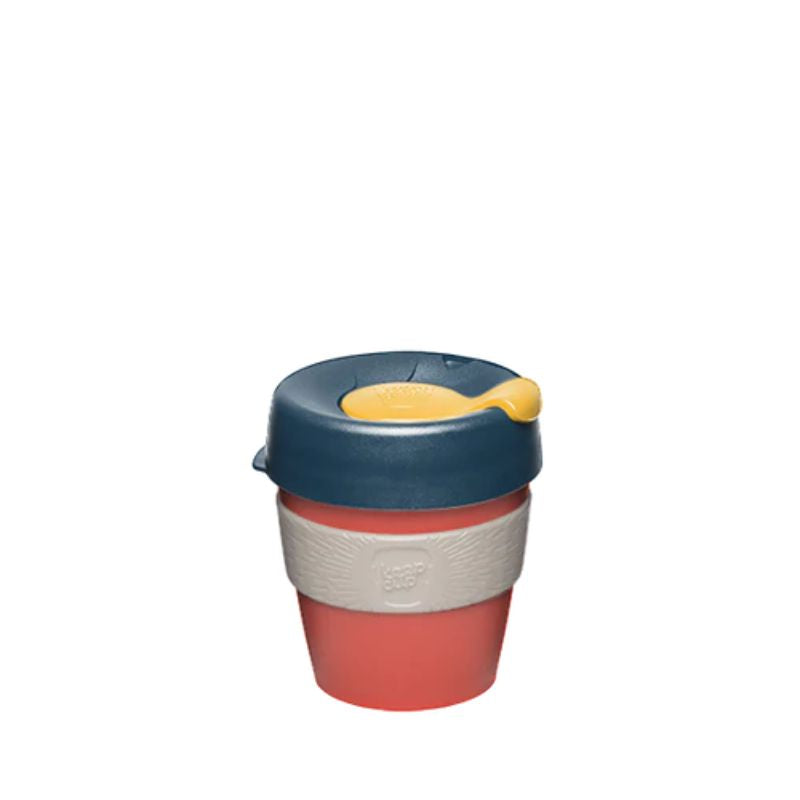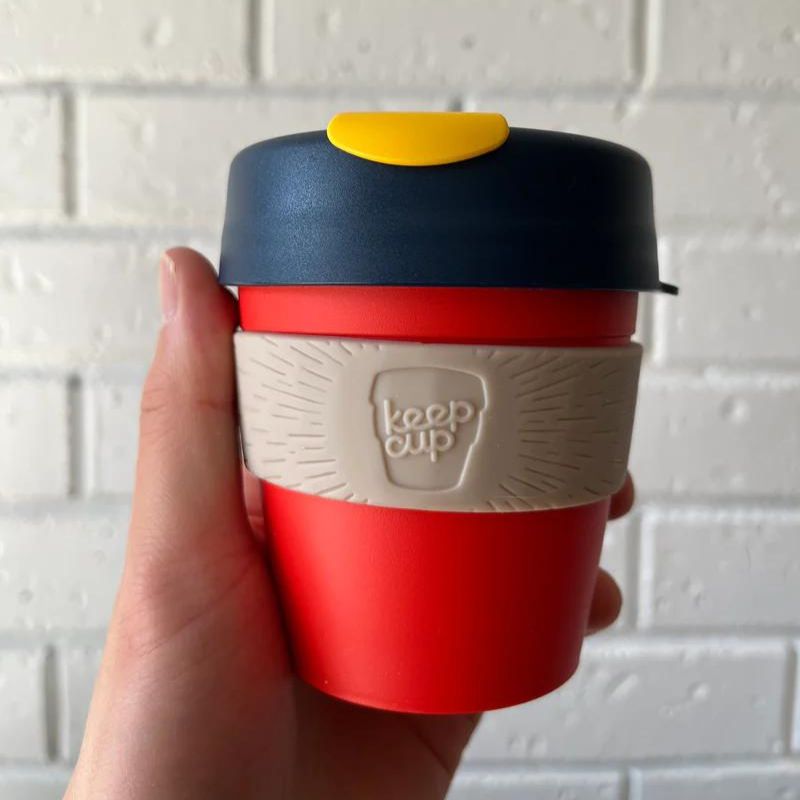











KeepCup Original, Reusable Plastic Cup, S 8oz / 227ml - Available in 4 Colours
Take your home made or locally brewed coffee, matcha, tea, or whatever you drink anywhere today. The Worldly Lane designed Keep Cups help to reduce your impact, by reducing the need for plastic and disposable cups. Did you know, you can also get a price reduction at your local cafe if you bring your own cup? The cups are modular (meaning you can replace the part, not the product). dishwasher and microwave (lid off) safe, with a plug for easy carrying, and to reduce any liquid spillage.
Here are some quick facts about single use cups and keep cups.
- 10 uses with a Keep Cup has a lower carbon impact than a compostable coffee cup.
- There is enough plastic in 20 single-use coffee cups and lids to make one KeepCup
I’m sure you’ve heard enough, get on the trend and grab yourself a keep cup today.
Meet the Maker
It started in a Melbourne cafe with a simple idea: keep it and use it again. When siblings Abigail and Jamie Forsyth started a café business in Melbourne in 1998, disposable cups were entering the public landscape; the signifier of a busy professional life and a vibrant independent coffee scene.
The goal was always to kick start behaviour change, from discard to reuse – to deliver a positive global campaign that would change the status quo. Today, KeepCup has grown to define a product category.
KeepCups are now used in more than 75 countries around the world and users, or reusers, divert millions of disposable cups from landfill every day. Their actions inspire others to do the same.
Sustainable Score
Great: Polypropylene which the keepcup, cup is made from is a lightweight material and fairly durable. It can be handy as a life proof cup. Polypropylene is a more environmentally conscious option than other plastics as it doesn't release toxins and a lower carbon footprint. The lid and cap are made from low-density polyethylene plastic (LDPE) #4, which is also durable. Although, as you would be aware, plastic does have many downfalls such as breaking down into microplastics, coming from fossil fuels and being unable to decompose.
The band is made from silicone, which can withstand high temperatures and is resistant to bacteria. Silicone is not recyclable in most cases and after it’s long use is generally placed into the household garbage bin. It can take anywhere from 50 to 500 years to decompose.

